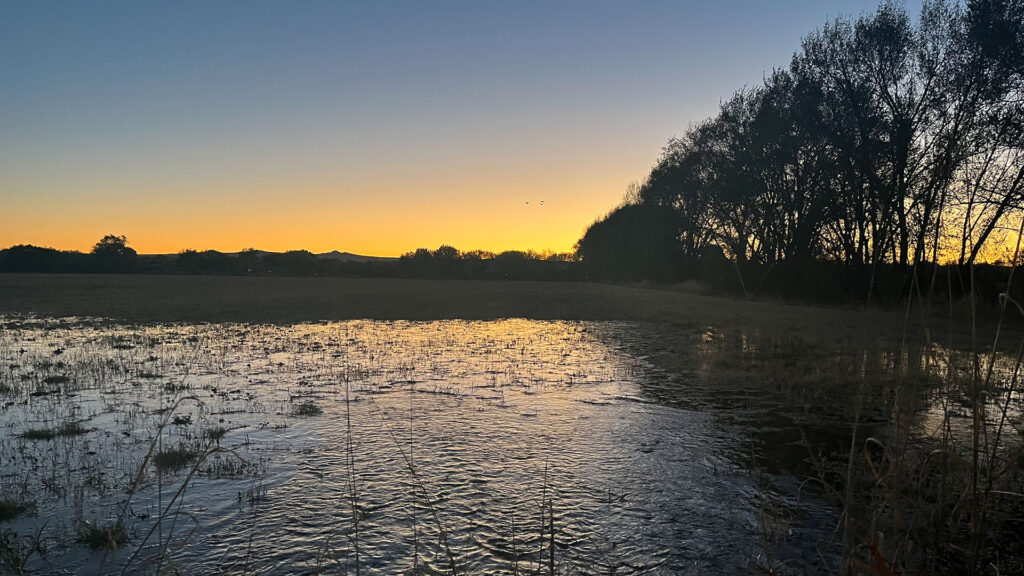Recalibrating

Things have been a bit hectic at NMPBS lately, so I’m filling in on New Mexico in Focus this week with an Our Land special focused on different ways of knowing our landscapes.
The show’s anchor is our documentary, “Ancestral Connections,” about the Pueblo of Santa Ana and Tamaya Kwii Kee Nee Puu, but we also look back to some old segments about wildlife, water, and wildlife crossings. Tune in on Friday night!
That also means I am writing this newsletter in a rush on Tuesday morning; rather than having all the news for you, or some original reporting on Gila trout or something amazing brewing among young people in Thoreau, New Mexico (stay tuned!), I’d like to share a few things I listened to and read over the weekend. (As an aside, I also don’t have time to post on Instagram, and it feels amazing to not have to deal with social media. But that’s a longer conversation for a different day.)
First up is The New York Times interview with Dr. Ayana Elizabeth Johnson. Read it, listen to it. Listen to it and then read it. But let’s heed her words.
I read that interview right after repeatedly listening to Colette Pinchon Battle, “On Knowing What We’re Called To,” on the podcast, “On Being.”
In that wide-ranging interview, Battle talks about her homeland, her culture, Hurricane Katrina and its continued impacts, spirituality, and so much more. She also talks briefly about FEMA —and the head of FEMA once saying, in a moment of transparency and honesty, “The disaster process in this country is designed for the middle class.”
I know her interview resonated with me so strongly because we’re working on a special about climate change and love, but I keep re-reading these words from Battle in the show’s transcript:
“…[T]o really admit climate, to really, really admit that you understand what is happening to the planet, it will break your heart. If you don’t cry deep, hard tears for the state of this planet and all of the people on it, you don’t yet understand the problem. And so once you get to that place, the only thing that can bring you out of that kind of darkness is belief in something greater than yourself. And for me, it is that spiritual connection. For me, is understanding a greater purpose. And then your job becomes less about passing a piece of legislation and more about making a better world. And so for me, this is absolutely spirit now. I mean, what do we have to lose? Well, we’re going to lose everything. So — and my last name is Battle. We’re going to lose everything, and my last name is Battle. What am I supposed to do? I’m supposed to fight.
I’m supposed to fight, but I’m supposed to fight with tools that build people up, not tools that take people down and take them out. And that’s love. That’s patience. That’s all of those things that they taught you in Sunday school. They were right. [laughs] You know, whatever the faith tradition is, those whittle down, the same ones, across the board: love, patience, care. And so yeah, that’s — it’s spiritual now. It’s — this is a moral dilemma we’re in, it’s not a scientific one. This is not about greenhouse gas reduction. This is about do we value people equally? And if we do, we’ve got some recalibrating to do, as a planet.”
And although I agree with Battle that passing bills isn’t enough — that we need to “make a better world” — I also think it’s important to read Bill McKibben’s essay in The New Yorker, “It’s a Climate Election Now.”
P.S. If a friend forwarded you this message, sign up here to receive the newsletter yourself. You can also read recent newsletters online. And if you miss us throughout the week, follow Our Land on Instagram.


